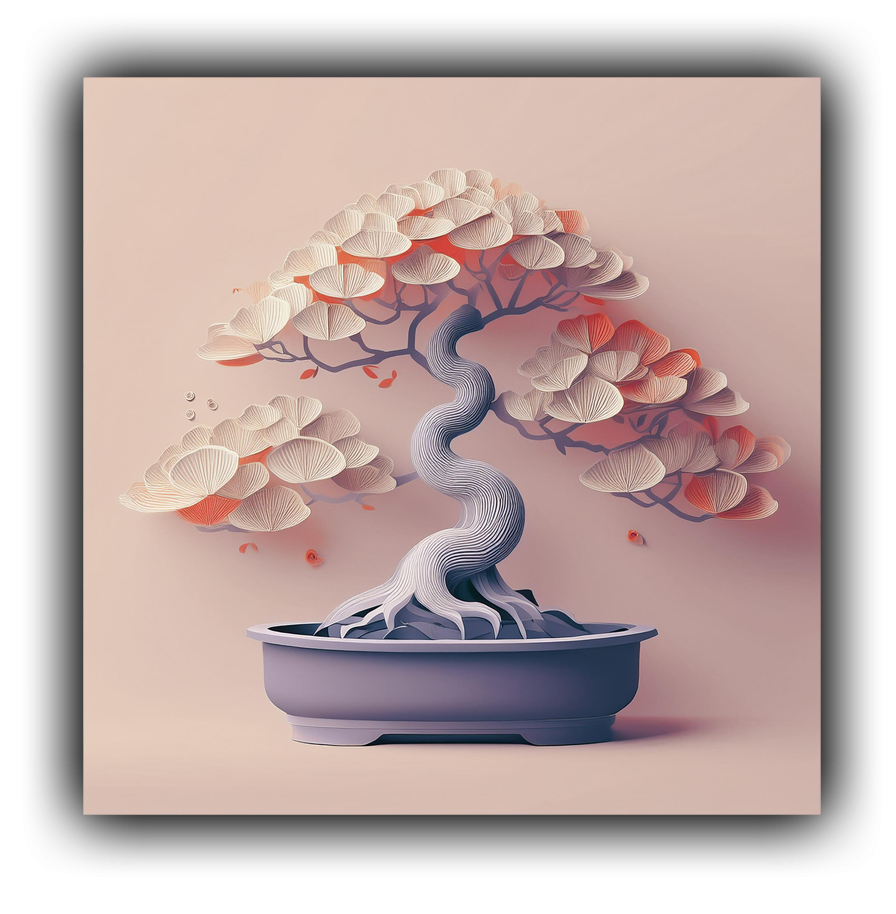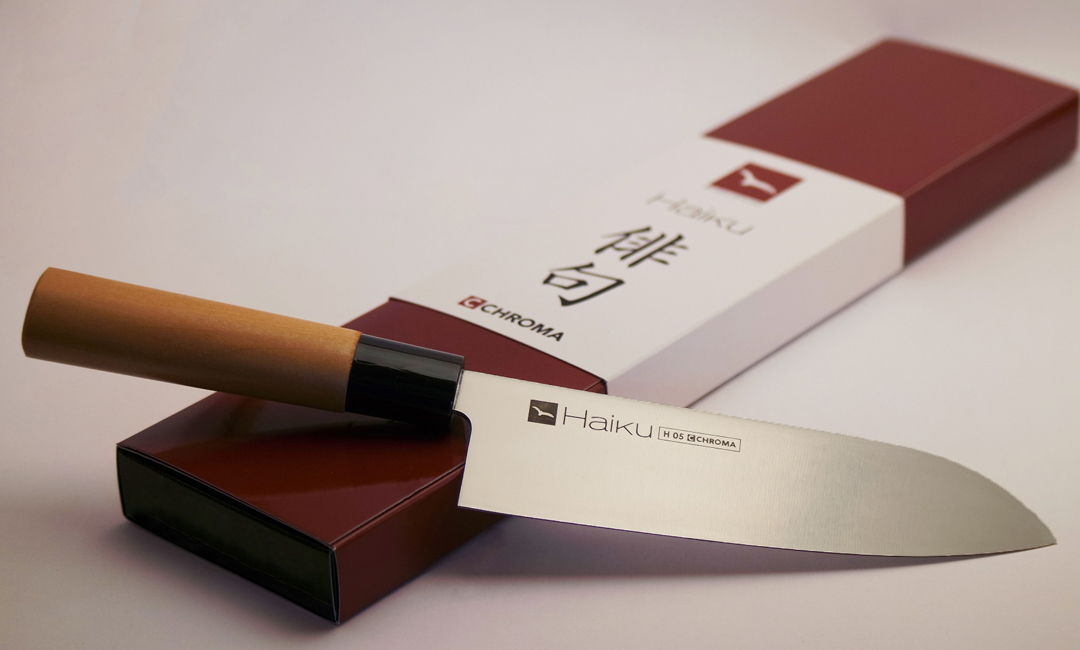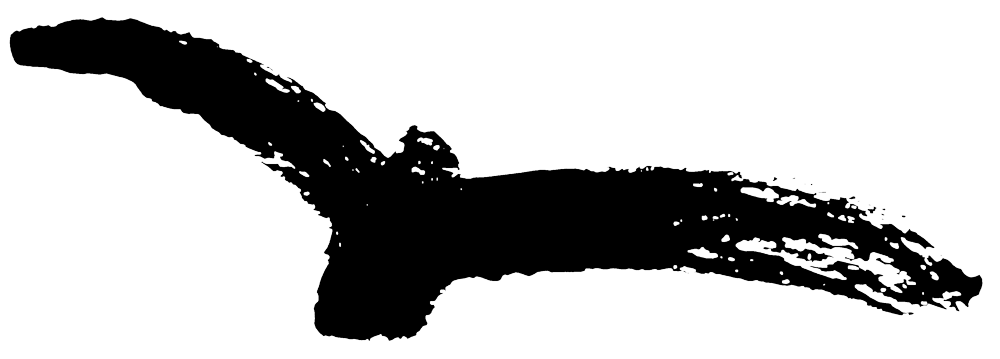 A bonsai is a tree that grows in a miniature pot. A haiku is a poem reduced to 17 syllables. Japanese culture has always cultivated an aesthetic of reduction, and the aptly-named Haiku knife is a case in point : an idea reduced to its simplest expression, contrasting its ingenious assembly drawn from millennia of know-how, and advanced metal technology which has presided over its sharpness and durability.
A bonsai is a tree that grows in a miniature pot. A haiku is a poem reduced to 17 syllables. Japanese culture has always cultivated an aesthetic of reduction, and the aptly-named Haiku knife is a case in point : an idea reduced to its simplest expression, contrasting its ingenious assembly drawn from millennia of know-how, and advanced metal technology which has presided over its sharpness and durability.
With underlying elements firmly rooted in tradition, such as its blade and handle architecture. It's an heritage of ancient times, rich in hereditary techniques, which can be found even in temple construction (the art of kigumi which consists of assembling pieces of wood without nails or other metal elements).
A technique that offers multiple advantages :
- wood is warm and soothing, providing comfort (the knife adapts to the grip the more it is used, becoming increasingly haptic), and relaxation (the benefits of honoki wood are known since long time : japanese bathtubs were once made from this material)
- to absorb vibrations : earthquake resistance for buildings, the blade set in bamboo to alleviate musculoskeletal disorders for the knives
- in Japan's animist religion, wood is sacred ans is not to be harmed, which is why Haiku knife has no metal penetration
The Haiku knife is a paragon os virtue in its use of natural cyclical materials that regrow very quickly, using as few ressources as possible in its manufacture. It's also ultra-artisanal, all handmade.

